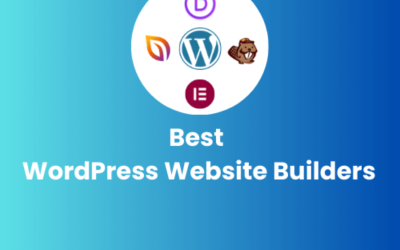Introduction
When it comes to setting up an online store, choosing the right eCommerce platform is crucial for the success of your business. With a multitude of options available in the market, it can be overwhelming to decide which platform best suits your needs. In this blog post, we will explore some of the top eCommerce platforms that are popular among online retailers and discuss their features, pros, and cons.
The Best E-Commerce Platforms :

1. Shopify
Shopify is one of the most popular eCommerce platforms, known for its user-friendly interface and robust features.
With Shopify, setting up an online store is a breeze, thanks to its drag-and-drop website builder and customizable themes.
The platform offers a range of tools for managing products, processing orders, and analyzing sales data, making it a comprehensive solution for both beginners and experienced merchants.
Pros & Cons:
Pros:
- Free 3-day trial, then one month for $1
- Easy to Use and Setup
- Mobile Friendly Themes
- Great Customer Service
- Great for dropshipping integrations
- Shopify offer shopify built-in payment gateway as well as porivide integrations with over 100 other payment providers around the world such as Stripe, Paypal, Amazon Pay.
Cons:
- No free plan
- Limited selection of free themes
- No Email Hosting
- Difficult exit. Once you establish your online store within the Shopify, transferring your store files and design to a different platform can be a complex process.
Pricing: Starting at $32 per month. For more details, You can visit their website by clicking the following button:
2. WooCommerce
If you’re already familiar with WordPress and looking to add eCommerce functionality to your existing website,Then WooCommerce is an excellent choice. As a plugin for WordPress, WooCommerce seamlessly integrates with your WordPress site, allowing you to turn your blog or portfolio website into a fully functional online store.
Pros & Cons:
Pros:
- Free as WordPress Plugin.
- Highly customizable open-source software.
- More than 1,400 themes available (free and paid options).
- Mobile apps
- Excellent SEO
- Can sell physical products, digital Products ( downloads and services)
- No contracts required
Cons:
- Only works with WordPress websites
- Paid WordPress hosting required. You need to subscribe to WordPress hosting providers. You can read the article The Best WordPress Website Builders in 2024 to find recommended providers
- Frequent updates required
- Not user-friendly for beginners
- Provide only Support Services through Live Chat or Email
For more details, You can visit their website by clicking the following button:

3. BigCommerce
For online store owners looking for a robust and scalable eCommerce platform, BigCommerce is a top contender. With its powerful built-in features, such as multi-channel selling, inventory management, and marketing tools, BigCommerce is designed to help you succeed in the competitive world of eCommerce.
Pros & Cons:
Pros:
- Ton of features
- Free 15-day trial
- User-friendly page builder
- No added transaction fee
- 24/7 support via live chat, phone and tickets on all plans
Cons:
- Plans do not include a domain name
- No email marketing tools
- No subscription features for your customers
- Premium themes get expensive
Pricing: Starting at $29 per month. For more details, You can visit their website by clicking the following button:




